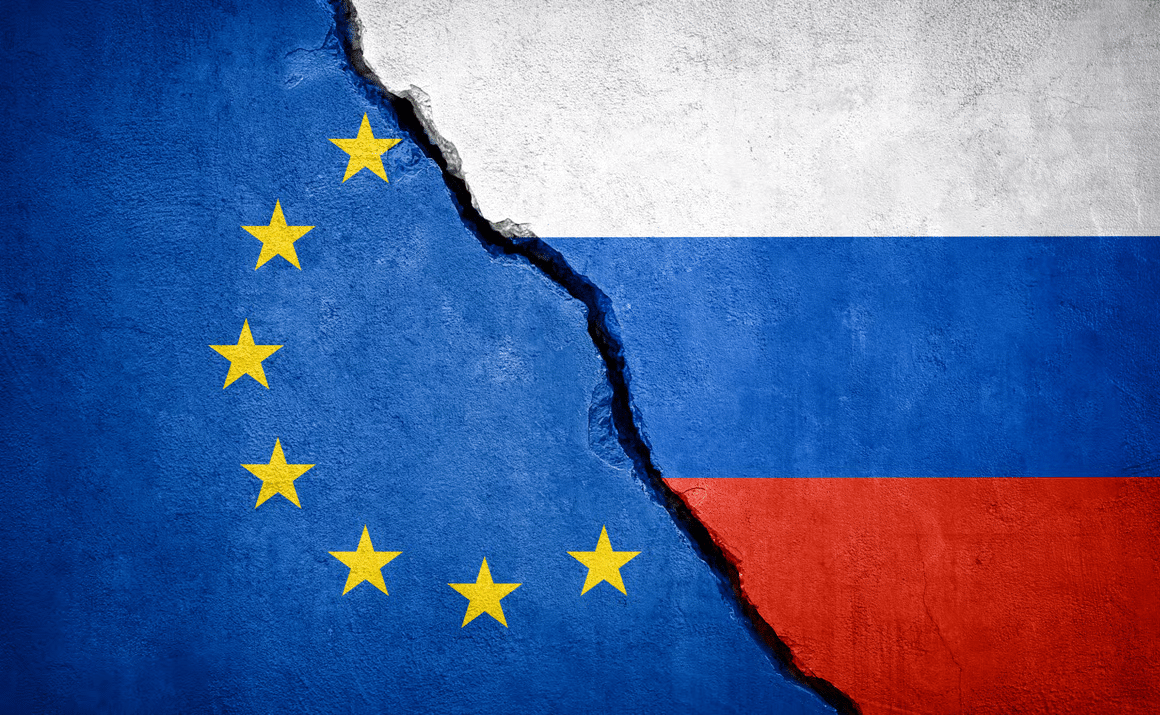
The European Union has announced yet another round of economic sanctions against Russia, including a proposal to lower the price cap on Russian oil to $45 per barrel, in a continued effort to strangle the Kremlin’s ability to finance its war in Ukraine. But as the 18th package of punitive measures is unveiled, critics are asking a pressing question: Is the EU sanctioning Russia, or simply signaling virtue in the absence of real results?
Sanctions, once billed as a powerful weapon of economic warfare, appear to have become a routine political gesture — predictable, largely symbolic, and increasingly ineffective. While European Commission President Ursula von der Leyen touts the new measures as critical to “restoring the effectiveness” of previous sanctions, data and economic indicators suggest a far grimmer reality: Russia continues to profit, adapt, and outmaneuver Western efforts to isolate its economy.
Von der Leyen’s flagship proposal — lowering the price cap on Russian oil from $60 to $45 — has already been met with skepticism. The cap, initially set in 2022 when oil traded above $100 per barrel, has long since lost its bite. In April 2025, oil prices fell below the cap entirely, rendering the restriction largely irrelevant. By May, Brent crude hovered around $67 — a modest recovery, but still insufficient to make the existing cap meaningful.
“The cap has been symbolic at best, and now it’s simply obsolete,” said one EU energy analyst. “Lowering it from $60 to $45 is like adjusting a broken thermostat in a burning house.”
Russian oil continues to flow — particularly to India, China, and other non-G7 markets — often at prices above the Western-imposed threshold, facilitated by a growing “shadow fleet” of tankers, many of which are deliberately untraceable and insured through opaque networks outside the EU’s regulatory reach.
As part of its new package, the EU plans to sanction 70 additional tankers, bringing the total to over 400. Yet according to internal EU estimates, Russia’s shadow fleet has ballooned to approximately 800 vessels, eight times larger than in 2022. The cat-and-mouse game between regulators and traders is clearly one the EU is losing.
The Commission’s decision to sanction an Indian ship captain marks the first attempt to punish individuals crewing these tankers. But it also exposes the desperation and limited reach of European enforcement.
“This shows just how far behind the EU is — trying to scare away individuals while entire fleets operate with near-impunity,” remarked a former diplomat.
Despite bold rhetoric from von der Leyen and foreign policy chief Kaja Kallas, evidence suggests that sanctions are doing little to meaningfully disrupt Russia’s wartime economy. Even with recent port bans and insurance restrictions, Russia’s oil exports via the Black Sea and Baltic have only dipped temporarily, before being rerouted through alternative corridors and buyers.
“We are ramping up pressure on Russia because strength is the only language that Russia will understand,” von der Leyen declared. But to many, these words ring hollow in the face of repeated sanction cycles with negligible impact.
Indeed, Russia’s oil revenues continue to fund its war machine, while the EU simultaneously grapples with energy inflation, supply chain strain, and growing political fatigue over the cost of sustained confrontation.
The EU’s move to blacklist companies involved with the defunct Nord Stream pipelines, including Nord Stream 1 which was sabotaged and Nord Stream 2 which never operated, appears to be more symbolism than substance. Russia has made vague overtures about reviving gas ties with Europe, but the idea that investors are lining up to pour money back into sanctioned pipelines is wildly speculative at best.
Moreover, the plan to restrict 22 more Russian banks from the SWIFT system — after many were already cut off — signals a recycling of tactics, not a rethinking of strategy.
While the EU’s 18th round of sanctions may earn headlines and placate hawks within Brussels, it raises urgent questions about effectiveness, credibility, and strategy. With each new package, Moscow seems to adapt faster than Brussels can legislate. The reality is that after two years of war and sanctions, Russia remains entrenched, its economy resilient, and its oil still profitable.
At this point, it seems the EU is less interested in stopping Putin than in maintaining the appearance of action. As the war drags on, so too does the illusion that sanctions — unaccompanied by hard power or new diplomatic breakthroughs — are anything more than a slow-motion public relations campaign.